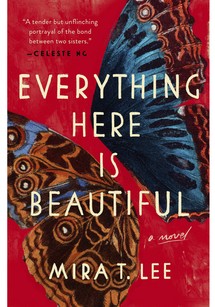
Lastly, vivid descriptions of the gentrifying Lower East Side of 1990s New York City, the heavily immigrant towns along the Hudson River, and several communities in Ecuador ground the characters in distinct locations.Īn evocative and beautifully written debut.Ī retelling of ancient Greek lore gives exhilarating voice to a witch. The book also exposes the helplessness of family members wishing to fix a fraught situation the class dimension of health care delivery and the rampant misinformation surrounding the treatment and diagnosis of illnesses like schizoaffective disorder.

In addition, what it means to live outside one’s country of origin is explored from both Manuel's and Lucia’s perspectives. A move to Ecuador, where Lucia, Manuel, and baby Esperanza live in close proximity to Manuel’s family, is both comforting and stifling and raises questions about the cultural assumptions governing gender, parenting, and assimilation. Later, she hooks up with Manuel, an undocumented Ecuadoran immigrant working odd jobs in Westchester Country, New York, and has a baby. Her loving first marriage, to an older Israeli East Village shop owner named Yonah, begins and ends abruptly, revealing the magnitude of Lucia’s impetuous nature. Instead, we get inside her head-perhaps even inside her soul-to grapple with the challenges she faces. To Lee's credit, Lucia, the more compellingly drawn of the two siblings, never seems like a psychological case study.


Of course, she knows that Lucia can be attentive, charming, and kind, drawing in friends and colleagues-at least until the inevitable delusions take hold. Just ask Miranda, elder sister to Lucia, a brash, brilliant journalist whose periodic descent into severe psychosis has taxed their relationship and forced Miranda to confront the limits of family loyalty. The tumult of loving someone with a chronic mental illness can exhaust even the most caring person.


 0 kommentar(er)
0 kommentar(er)
